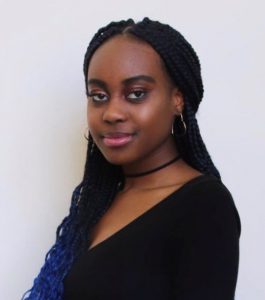

So…what is Comparative Literature?
Well, ‘what is comparative literature’ is actually the name of a core first-year module that we study! You might find that studying Comp Lit is different to your preconceived ideas of what the programme is like, which is completely fine as the lecturers definitely don’t expect you to be an expert. One apprehension that I had before starting at King’s was that I would be at some sort of disadvantage because I hadn’t come across Comparative Literature before. There was no need for me to worry, as we were all eased into the course right at the start and given the opportunity to learn about the discipline in our first year. I would say that if you’re adventurous, ready to discover new ways to read, analyse and relate to texts, then this just may be the right degree for you.
Comparative Literature is a very interdisciplinary course, and as someone who has an interest in politics and current affairs, I have been able to learn about many different perspectives around the world in great detail through the lense of literature, which is something that I was personally looking to get out of this course. Other students in my year group have also been able to explore their interest in film and classical studies through the joint honours courses that the department has to offer.

Do I have to give up studying English to do Comparative Literature?
No, not at all! Another worry that I had before starting Comp Lit was whether I would really miss studying English Literature as it was my favourite subject at Sixth Form. Many first-year modules such as the Novel in the 18th Century actually focus on English canonical texts, such as Robinson Crusoe and Sense and Sensibility. We also have the chance to choose elective modules during each year of the degree programme, meaning that you can always choose an English module to study alongside your Comp Lit module choices, if you’d like.
Something that makes the Comp Lit course very unique is the language requirement, and is one of the reasons I chose to study at King’s. I loved learning Spanish at GCSE but couldn’t continue with it at A-Level, so I was thrilled to learn that I could take language classes at the Modern Language Centre for credit, plus the chance to improve my Spanish! If you love learning languages but still want to be able to study literature in translation, then this is definitely the degree programme for you.
What can I do with this degree after I graduate?
As Comparative Literature is not necessarily a vocational degree, the career options are endless! There are so many different transferrable skills that one can gain from studying this course. I aspire to enter the fashion journalism industry when I graduate and I feel that the Comparative Literature course is already preparing me to be a good writer. In lectures and seminars, we are probed to be analytical, notice the ‘little’ details so to be able to contextualise them and put together the bigger picture. These skills can be applied to lots of different careers. Language skills are also extremely valuable, as again they can be beneficial for a variety of industries and are always well sought-after. The Comp Lit department also recognises that some students might not have decided what kind of work that they would like to do after they graduate, especially in the first year, hence why there is an optional careers workshop, where we are encouraged to explore our options and map out what we might want to do in the future.
More information:
To explore the King’s Comparative Literature BA course page, click here
To read an interview with Dr. Sara Marzagora, a lecturer in Comparative Literature, click here
To read Paige’s blog post, ‘Day in the Life of a Comparative Literature Major’, click here
To read Giovanna’s blog post, ‘Top 5 Favourite Things about Comparative Literature’, click here
To read an article on Dr. Zoe Norridge’s research on African Literature, click here

Leave a Reply